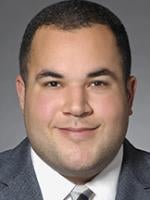The Coronavirus Aid, Relief, and Economic Security (CARES) Act of 2020, enacted and sent to the President for his signature on March 27, 2020, is bipartisan legislation providing more than US$2 trillion in relief for both companies and families affected by the coronavirus disease 2019 (COVID-19) pandemic. It includes a number of provisions designed to help employers and employees contend with a scaled-back workforce and other economic fallout.
In this update, we take a close look at some of the provisions that relate to retirement plans and the payment of employment taxes. Additional taxation-related provisions are covered in a separate client alert.
Section 2202. Special Rules for Use of Retirement Funds
These new rules provide individuals affected by COVID-19 access to retirement savings that under current law would not be accessible or would be subject to penalty if withdrawn.
Tax-Favored Withdrawals From Retirement Plans
This provision waives the 10% early withdrawal tax penalty that generally is imposed on early distributions from qualified retirement plans (including 401(a), 401(k), 403(a), 403(b), 457(b) plans and IRAs). The penalty is waived for distributions up to US$100,000 made during the 2020 calendar year to an individual (1) who is diagnosed with COVID-19, (2) whose spouse or dependent is diagnosed with COVID-19, or (3) who experiences adverse financial consequences as a result of being quarantined, furloughed, laid off, having work hours reduced, being unable to work due to lack of child care due to COVID-19, closing or reducing hours of a business owned or operated by the individual due to COVID-19, or other factors as determined by the Treasury Secretary (a “Coronavirus-related Distribution”). The US$100,000 limit is an aggregate limit for individuals, applying to distributions from all qualified retirement plans within an employer’s controlled group. The distribution will not be subject to withholding, and income tax on the Coronavirus-related Distribution may be spread ratably over a three-year period. Employees are required to sign a certification of the reason for the distribution. Plan administrators are not required to verify the reason.
Alternatively, the provision allows individuals to recontribute the funds to an eligible retirement plan during the three-year period commencing on the day after the date on which the Coronavirus-related Distribution was received without having the amount recognized as income, as if it were a rollover back into the retirement plan or IRA.
Loans From Retirement Plans
The provision relaxes some of the existing qualified retirement plan loan rules that permit loans from 401(a), 401(k), 403(a), 403(b) and government plans by individuals who are eligible for Coronavirus-related Distributions for 180 days following enactment. Specifically, it increases the maximum loan amount from US$50,000 to US$100,000. Individuals with less than US$100,000 in their plans will be able to take a loan of up to the present value of their accrued benefit. (Under current law, loans could not exceed 50% of the account balance.)
The provision also delays the repayment of existing loan obligations by one year.
Section 2203. Temporary Waiver of Required Minimum Distribution Rules for Certain Retirement Plans and Individual Retirement Account
Under this provision, all required minimum distribution rules will be waived for calendar year 2020 with respect to tax-qualified defined contribution plans under Code Section 401(a) (including 401(k) plans), 403(a) and 403(b), government-sponsored Section 457(b) plans and IRAs. Thus, any individual who attained age 70½ prior to January 1, 2020, is not required to receive a required minimum distribution, as well as certain death beneficiaries.
During 2020, if amounts are paid that would have been required minimum distributions (“2020 RMDs”), the 2020 RMD is not eligible for a direct rollover to another plan or IRA. It appears that the 2020 RMD could be rolled over in a separate (indirect) rollover transaction (even back into the same plan). If a 2020 RMD is not rolled over, it will be taxed and will subject to normal income tax withholding rules for plan and IRA distributions.
Section 2206. Exclusion for Certain Employer Payments of Student Loans
The CARES Act permits employees to exclude up to US$5,250 from their gross income, under Code Section 127(c), amounts received from an employer for the payment of qualified education loans relating to educational assistance (e.g., tuition, fees, books). This provision, however, is limited to such loan repayments in 2020 only.
Section 2301. Employee Retention Credit for Employer Subject to Closure Due to COVID-19
During 2020, eligible employers are able to receive a credit against their employment taxes equal to 50% of qualified wages, up to US$10,000 for each employee. Eligible employers are 1) employers that experience a partial or full suspension of operations due to a COVID-19-related government order that limits commerce, travel or group meetings; or 2) employers that have gross receipts that are less than 50% of their gross receipts for the same quarter in the prior year, until their gross receipts exceed 80% of their gross receipts for the same calendar quarter in the prior year.
Eligible employers with more than 100 employees are eligible for an employment tax credit on wages paid to employees who are not providing services due to a COVID-19-related business suspension or reduction in gross receipts as noted above. Employers with 100 or fewer employees may receive an employment tax credit on all wages paid to their employees. The 100-employee threshold is based on the average number of full-time employees employed in 2019, using the methodology that exists to count employees for purposes of the Affordable Care Act (ACA) employer mandate tax (Code Section 4980H).
Two important items to note are: 1) employers who claim an employee retention credit are not entitled to claim an FMLA credit under Code Section 45S; and 2) employers who receive a business interruption loan under the Small Business Act will not be eligible to receive an employee retention credit.
This section also applies to tax-exempt organizations that are exempt under Code Section 501(a).
Section 2302. Delay of Payment of Employer Payroll Taxes
Employers generally are responsible for paying a 6.2% Social Security tax on employee wages to the federal government quarterly. For wages from the date of enactment through December 31, 2020, employers and self-employed individuals may delay paying the 6.2% employer share of Social Security taxes, with no penalties or interest charges. One-half of the amount will be due by December 31, 2021, and the other half by December 31, 2022. Small businesses that have received loan forgiveness under Section 1106 of this legislation are not entitled to delay these tax payments.
Section 3607. Expansion of DOL Authority to Postpone Certain Deadlines
The Employee Retirement Income Security Act of 1974 (ERISA) sets forth numerous requirements for employee benefit plans, including 401(k) plans and health and welfare plans. In the event of a Presidential-declared disaster or terrorist or military action, ERISA Section 518 provides that the Secretary of Labor may postpone (for up to one year) the date an action is required or permitted by to be completed pursuant to ERISA.
Section 3607 of the act amends ERISA Section 518 to allow for an extension for “a public health emergency declared by the Secretary of Health and Human Services pursuant to Section 319 of the Public Health Service Act.”
This change will provide the Department of Labor with significant leeway to delay filings, such as the Form 5500 filing, and other required ERISA items in response to COVID-19. Employers will need to await further guidance from the Department of Labor regarding what items it elects to delay.
Section 3608. Single-Employer Pension Plan Funding Rules
Required Contribution Relief
ERISA and the code impose strict funding requirements on defined benefit pension plans. This provision gives sponsors of single-employer pension plans additional time to meet their 2020 funding obligations, including obligations to made quarterly plan contributions. The due date for any contributions otherwise due during 2020 is delayed until January 1, 2021. At that time, contributions due earlier in the year must be paid with interest. This provision does not apply to multiemployer defined benefit plans.
Distribution Restrictions
Single employer defined benefit pension plans are required to impose certain restrictions on payments of certain types of benefits (e.g., plant shutdown benefits) and certain types of plan distributions (e.g., lump sum payments), as well as plan amendments increasing plan liabilities, based on plan funding levels. Specifically, the restriction can apply when the plan’s “adjusted funding target attainment percentage” is below 80% or 60%, depending on the type of restriction.
This provision allows plan sponsors to rely on a plan’s adjusted funding target attainment percentage for the last plan year ending before January 1, 2020, for purposes of determining whether any applicable benefit or amendment restrictions apply to a plan year beginning January 1, 2020, or any other plan years that include part of the 2020 calendar year. This might enable a plan to avoid having to comply with the additional restrictions on benefit payments.
Section 3702. Inclusion of Certain Over-the-Counter Medical Products as Qualified Medical Expenses
For expenses incurred after December 31, 2019, Section 3702 now permits individuals to purchase over-the-counter drugs and menstrual care products with their Health Savings Accounts, Flexible Spending Accounts, Health Reimbursement Accounts and Archer Medical Savings Accounts without a prescription. This is a change from the requirement in the ACA that generally prevented over-the-counter drugs from being paid by these tax-efficient accounts unless they were prescribed or insulin. This section appears to reverse the ACA and makes permanent the over-the-counter drug changes during the 2020 plan year and after.









 />i
/>i

